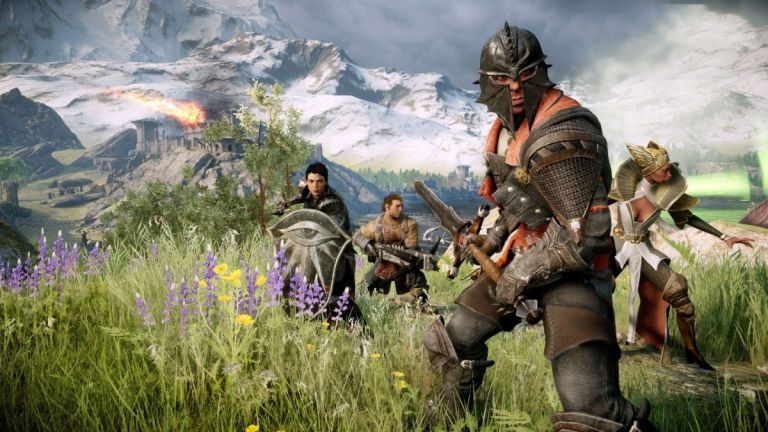Former Ubisoft Executive Canceled King Arthur Game From Dragon Age Director
Former Ubisoft executive Serge Hascoët reportedly canceled an ambitious King Arthur RPG because he doesn't like the fantasy genre.

A report from Bloomberg reveals that former Ubisoft executive Serge Hascoët is responsible for the cancellation of a King Arthur project led by Dragon Age creative director Mike Laidlaw.
The report (which is currently behind a paywall) indicates that Laidlaw was hired by Ubisoft sometime around 2018 to work on an RPG project known as Avalon. With the help of Assassin’s Creed Odyssey developers Ubisoft Québec, Laidlaw intended to create an expansive fantasy world based on the legends of King Arthur and the Knights of the Round Table.
It seems that Laidlaw and the team at Ubisoft Québec also intended to base elements of Avalon‘s gameplay on Capcom’s Monster Hunter series. For instance, Avalon was supposed to feature cooperative multiplayer options which would have allowed players to traverse the game’s world together.
While most of those close to the project seemed to think that it was coming along well, Serge Hascoët disagreed. It seems that Hascoët outright disliked the fantasy genre and reportedly noted that the game had to be “better than Tolkien” if it was going to succeed.
The report indicates that the team saw the writing on the wall in regards to Avalon ever being able to overcome Hascoët’s dislike of the genre. As such, they attempted to change Avaolon‘s setting from fantasy to Greek mythology and even sci-fi. Sadly, the game was ultimately canceled.
Before we dive a little further into Avalon‘s cancellation, we should be clear that canceling projects due to personal preferences is far from the reason why Serge Hascoët is no longer a Ubisoft executive. Ubisoft has recently been accused of fostering a work environment plagued by toxicity and harassment. Hascoët’s direct involvement in that matter is still being investigated, but so far, it’s believed that he failed to act in response to initial allegations and may have even been one of the driving forces behind the rise of the company’s hostile workplace.
As for Avalon, it’s another example of how some have said that Hascoët is partially responsible for Ubisoft’s reliance on established franchises in recent years as well as a noticeable reduction in their pursuit of original properties. While some hope that his departure from the company may result in Ubisoft granting larger budgets to more than just Far Cry, Assassin’s Creed, and Tom Clancy games, there’s really no guarantees that will be the case. Besides, it’s pretty clear at this point that predictable games are far from Ubisoft’s only problem.
